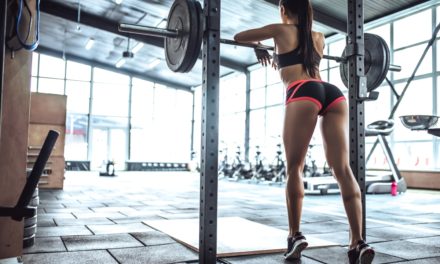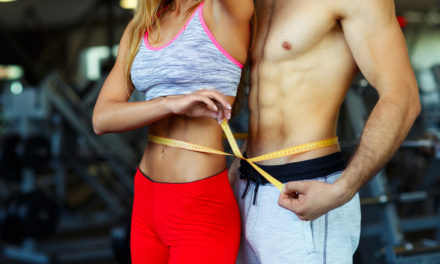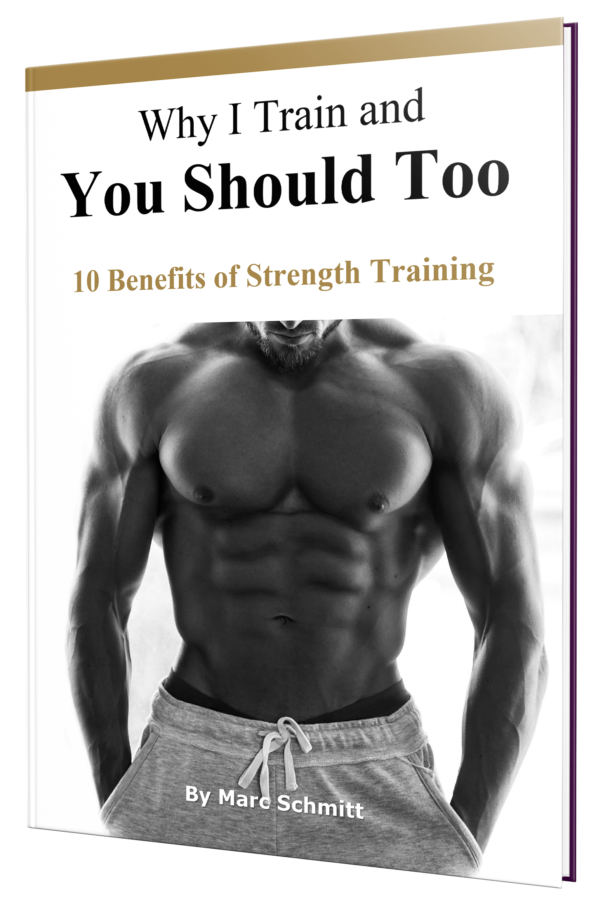Protein Powder: Yes or No?
Protein is the building block of life and it is important for various functions in our body.
Protein powders are dietary supplements that give you additional nutrients if you do not get them from normal food sources.
One of the best whey protein powders on the market is the Whey Protein Powder from Optimum Nutrition, which I also use personally on a regular basis.
In this article, I will explain why protein powders are a very good addition to your usual diet and essential for serious body transformation.
Let’s get started.
Proteins: The Most Important Macronutrient
Proteins, which are broken down into amino acids, are responsible for the major structural and functional component of every cell in the human body.
Amino acids cannot be produced by transforming other nutrients such as carbohydrates or fats, but it is possible to use protein sources to fulfill the other macronutrient requirements, which is mainly providing energy to fuel our daily activities.
In addition, our body can’t store amino acids over the long term.
Fat, for example, can be stored – quite obviously – for a long period and in significant amounts. Carbohydrates can be stored as glycogen in the body and are used when you need a quick boost of energy. But protein cannot be stored for a very long time and needs to be consumed on a consistent basis.
This is the main reason why bodybuilders tend to have several small meals per day instead of just two big meals. This helps to maintain protein synthesis in our muscles over time.
Advantages of protein:
- Muscle Mass: Protein is the major building block of every cell and hence extremely important for building lean muscle tissue. Related article: How to Build Muscle
- Reduced Cravings: Increasing your protein intake can also help you with weight management. It promotes satiety and hence, you will naturally reduce your calorie intake.
- Your Body Burns more Calories: It also provides the highest thermic effect of feeding, as digestion of proteins requires more energy than carbohydrates or fats.
- Prevents Muscle Breakdown: It helps to prevent or at least minimize the loss of lean muscle mass during your diet.
Again, unlike fats and carbohydrates, proteins do not have a reservoir where they can be stored. Therefore, it is vital that you get a daily supply of proteins. It does not matter whether this supply comes from natural food sources or a whey isolate.
Protein Powder Can be Useful
In a perfect world, we would have a perfect diet. Unfortunately, this is often – due to several reasons – not possible. We are stressed out, do not have time to cook or even buy the necessary ingredients.
This is where dietary supplements such as protein powders come in handy because they are easy to store and also easy to prepare.
Without protein intake, your body cannot repair tissue damage suffered during your resistance training sessions. It will also be very difficult to gain lean muscle tissue if your protein intake is not well planned.
I personally use more protein supplements while on a cutting diet compared to building mass. It is easier to reach the right protein level if you eat in a slight surplus than a caloric deficit. And as mentioned earlier, a significant intake of protein will help you prevent the breakdown of muscle mass during a weight loss diet, which tends to be the single most important objective for most people who have built muscle mass over several months to years.
If you already have a diet that’s full of high-quality protein, using protein powders won’t make a huge difference. Your body only needs a certain amount of protein. Protein powders are designed for people who have difficulties meeting their protein needs naturally. So, if you are struggling to meet your protein needs solely with food, protein powders are a good choice.
So, what are acceptable levels for daily protein consumption?
How Much Protein Should You Take?
As an athlete or bodybuilder, or simply for a regular diet, you should first establish your protein need and then add fats and carbohydrates to reach your pre-determined calorie needs. The recommended daily intake is 0.8 – 1.0 g of protein per kilogram body weight for both men and women above age 19 during a normal day or while doing a standard fitness program. Consuming significantly more protein than recommended is generally not a problem as the body metabolizes protein as a source of energy. Your protein intake should be adjusted to the specific demands of your lifestyle.
Recommended protein intake (per kg body weight) for:
- Sedentary and light fitness (0.8 – 1.0 g)
- Endurance sports (1.0 to 1.6)
- Strength athletes and bodybuilding (1.5 to 2.0 g)
Given that muscle protein synthesis is highest after stimulation, it makes sense to consume your protein directly after a training session. This increased receptiveness of the muscle tissue for the intake of amino acids last for around 48 hours, but will slowly decrease after training.
Related article: Beginner’s Guide to Resistance Training.
There are also a couple of sources which claim certain side effects from too much protein intake. However, I have never had any negative side effects while using protein supplements, even while taking slightly more than the above-recommended amounts. The major fitness research in this area also tends to agree on my personal observation.
Protein Supplements vs. Whole Foods. Is There a Winner?
A lot of people believe that protein supplements are inferior to whole food protein sources. But a study created by researcher Paul Arciero and his team put two groups on different diets. One group was given whole foods, while the other group was on protein supplements. The results were pretty much similar, with a great boost in their physical performance and body composition.
This clearly shows that protein supplements are as good as whole foods. It all comes down to your preference and also your ability to eat enough protein solely from natural sources. Depending on the protein supplement, it might even end up bringing better results than whole foods. But it’s clear that both of them are great for your body.
As you can see, protein powders are great for your body as long as you stick to a certain protein amount per day and don’t take more than is required.
Should You Supplement With a Protein Powder?
It obviously depends on your personal lifestyle and living circumstances, so I cannot speak for everybody. If you are able to meet the required protein intake with normal food intake, there is no additional benefit in using a supplement. But for me at least, this is almost not possible, especially while I am on a cut/diet trying to maintain a caloric deficit over time.
So the answer, for the majority of us, is a simple yes, especially if you take your training seriously. The biggest issue I see with protein is the difficulty of consuming enough of it with the usual food intake.
I personally take more supplements during a cutting cycle. The main reason is due to the muscle loss problem. Since we work very hard to achieve a great muscle mass, we can at least protect it during a diet phase, and a protein supplement will do a very good job here. It does not have a lot of calories. However, it has a good fullness effect and a significant amount of protein. Extreme diets without incurring a lot of muscle loss are only possible due to the existence of isolated proteins and amino acid supplements. Otherwise, we would have involuntarily to ingest additional macronutrients like carbs and fats. The only way to achieve a similar effect (compared to protein powder) would be to eat pure egg whites and lean chicken. Everyone who has ever tried to do that knows how annoying it gets. It doesn’t taste good, and a dry chicken breast is a chore to eat.
Conclusion:
Let’s face it. Protein powders are convenient and provide high-quality protein, which is difficult to achieve with natural foods.
Since it has already been shown that protein powders are similarly effective as whole foods for muscle growth, there is no need to avoid them on purpose.
One of the best whey protein powders on the market is the Whey Protein Powder from Optimum Nutrition, which I also use personally on a regular basis. You cannot go wrong with this one.
If you have difficulties reaching your daily protein intake for muscle growth or muscle maintenance during a weight loss period, just use them. Whey protein powders are not harmful and will help you a little bit on your challenging journey toward a perfect physique.
Related article: How to Build Muscle
If you found this post helpful, I’d love for you to kindly share it with your friends and followers on social media – just click any of the buttons below! Thank you









